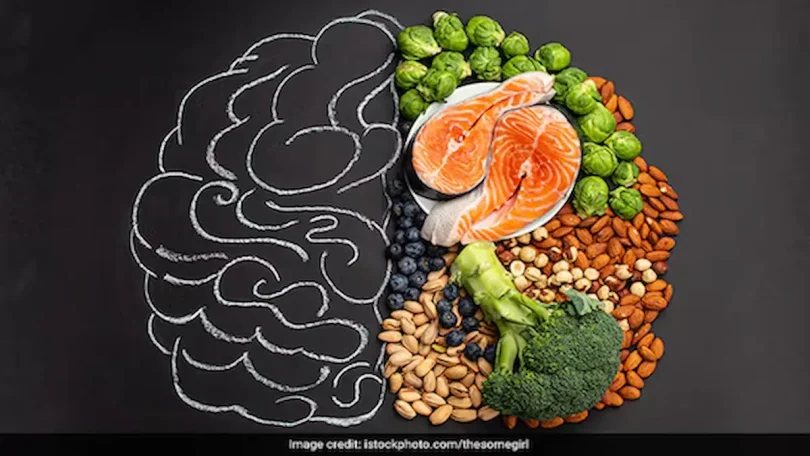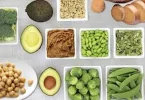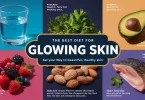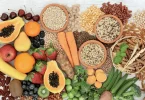Your brain is like the most powerful computer you’ll ever own—it controls your thoughts, emotions, movements, memory, and even the way you respond to stress. But here’s the thing: just like your body, your brain needs the right fuel to perform at its best.
Poor diet can leave you feeling foggy, forgetful, and mentally drained, while nutrient-rich foods can sharpen your focus, boost your mood, and protect your brain against aging.
In this article, we’ll go beyond the basics and explore the top foods that improve brain health, why they matter, and how you can easily include them in your daily meals.
1. Fatty Fish – The Brain’s Favorite Food
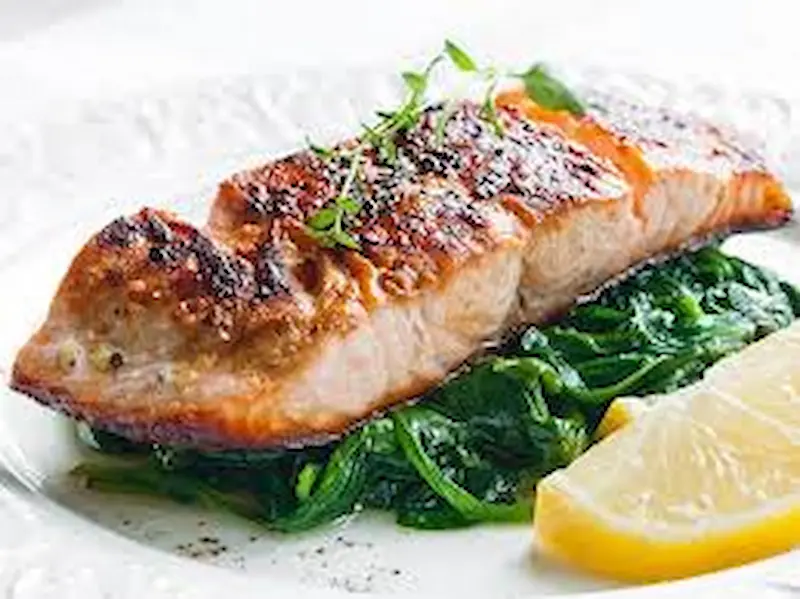
Fatty fish like salmon, trout, sardines, and mackerel are loaded with omega-3 fatty acids, especially DHA (docosahexaenoic acid) and EPA (eicosapentaenoic acid). These fats are literally the building blocks of brain cell membranes. In fact, about 60% of your brain is fat, and omega-3s are the most important type.
- Why it’s good for the brain: Omega-3s help improve memory, support learning, and reduce the risk of depression and Alzheimer’s. Low levels of omega-3 are linked to brain fog and learning difficulties.
- Easy ways to eat more: Grill salmon with lemon and herbs, add canned sardines to salads, or try tuna in a whole-grain wrap.
👉 If you’re vegetarian, flaxseeds, chia seeds, hemp seeds, and walnuts are great plant-based sources of omega-3s.
2. Blueberries – Tiny but Powerful
Blueberries may be small, but they’re loaded with antioxidants, especially anthocyanins, which fight oxidative stress and inflammation in the brain. These tiny berries actually help improve communication between brain cells.
- Why it’s good for the brain: Studies show blueberries can improve memory, delay brain aging, and even enhance learning. They protect against free radicals that can damage cells over time.
- Easy ways to eat more: Add blueberries to oatmeal, yogurt, smoothies, or just snack on a handful when you crave something sweet.
👉 Pro tip: Frozen blueberries are just as healthy as fresh ones and can last longer in your freezer.
3. Walnuts – Nature’s Brain-Shaped Nut
If you’ve ever noticed, walnuts actually look like tiny brains—and that’s a good reminder of what they’re good for! Walnuts are rich in omega-3 fatty acids, antioxidants, and vitamin E, all of which support brain health.
- Why it’s good for the brain: Regular walnut consumption is linked to improved memory, mental flexibility, and protection against age-related decline. Vitamin E helps protect cells from oxidative damage.
- Easy ways to eat more: Toss walnuts into salads, sprinkle them over cereal, or eat a small handful as an afternoon snack.
4. Dark Chocolate – A Sweet Brain Booster
Yes, chocolate can be good for your brain—as long as it’s dark! Dark chocolate (70% cocoa or higher) is packed with flavonoids, caffeine, and antioxidants.
- Why it’s good for the brain: Flavonoids in chocolate improve blood flow to the brain, boosting memory and problem-solving skills. Caffeine helps with focus and alertness, while antioxidants fight brain cell damage.
- Easy ways to eat more: Enjoy a square or two of dark chocolate in the afternoon for a natural energy lift.
👉 Remember, moderation is key. Too much sugar cancels out the benefits, so stick to small portions.
5. Broccoli – The Green Brain Protector
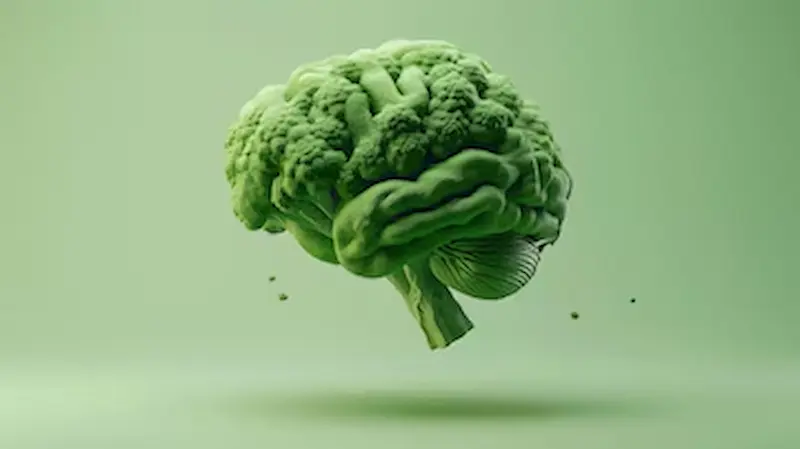
Broccoli is one of the best vegetables for brain health. It’s packed with antioxidants and high in vitamin K, which is essential for forming sphingolipids—fat molecules that make up brain cell membranes.
- Why it’s good for the brain: Vitamin K improves memory, and broccoli’s antioxidants fight inflammation. It’s also rich in compounds that protect against cognitive decline.
- Easy ways to eat more: Steam broccoli as a side dish, add it to stir-fries, or blend it into creamy soups.
You may also like it:
Best One-Pot Healthy Dinner Meals | Quick & Nutritious
Why Fiber Is Important in Diet | Health Benefits & Foods
Daily Nutrition Tips for Energy Boost – A Complete Guide
What Are the Best Foods for Glowing Skin | Top 10 List
6. Pumpkin Seeds – Small but Nutrient-Dense
Pumpkin seeds might be tiny, but they’re full of brain-friendly minerals like magnesium, iron, zinc, and copper.
- Why it’s good for the brain:
- Zinc improves nerve signaling and memory.
- Magnesium helps with learning and prevents stress-related brain issues.
- Copper aids in brain communication.
- Iron prevents fatigue and keeps the brain energized.
- Zinc improves nerve signaling and memory.
- Easy ways to eat more: Snack on roasted pumpkin seeds, add them to granola, or sprinkle them on salads.
7. Oranges – Vitamin C for Brain Protection
Your body can’t make vitamin C on its own, so getting enough from food is important. Oranges are one of the best sources.
- Why it’s good for the brain: Vitamin C protects the brain from free radical damage, boosts immunity, and reduces the risk of age-related decline. It also helps your brain use other nutrients more effectively.
- Easy ways to eat more: Eat a fresh orange daily, drink freshly squeezed juice, or add orange slices to salads for a refreshing twist.
8. Green Tea – Calm Energy for the Mind
Green tea is loved worldwide for its calming and energizing effects. It contains caffeine and L-theanine, a unique amino acid.
- Why it’s good for the brain: Caffeine improves focus and alertness, while L-theanine helps you relax without feeling sleepy. Together, they provide balanced mental energy and better concentration.
- Easy ways to drink more: Replace your second cup of coffee with green tea to avoid energy crashes. Add lemon or mint for extra flavor.
9. Eggs – Packed with Brain Nutrients
Eggs are a breakfast staple, but they’re also a brain superfood. They contain choline, a nutrient that your brain uses to make acetylcholine, a neurotransmitter important for memory and mood.
- Why it’s good for the brain: Eggs are also rich in B vitamins, which protect against mental decline and help maintain healthy brain function.
- Easy ways to eat more: Scrambled, boiled, or poached—eggs are versatile and easy to add to any meal.
10. Turmeric – The Golden Spice of Brain Health
Turmeric contains curcumin, a powerful anti-inflammatory and antioxidant compound that can cross the blood-brain barrier.
- Why it’s good for the brain: Curcumin has been shown to improve memory, boost mood, and even help new brain cells grow. It may also reduce the risk of Alzheimer’s.
- Easy ways to eat more: Add turmeric to curries, soups, or make golden milk with warm milk, honey, and a pinch of black pepper (to boost absorption).
Extra Brain-Boosting Tips Along with Food
- Stay hydrated—your brain is about 75% water, and dehydration can hurt focus and memory.
- Limit processed foods high in sugar and trans fats, as they damage brain cells.
- Get enough sleep, since your brain consolidates memory while you rest.
- Exercise regularly, as it boosts blood flow and oxygen to the brain.
Final Thoughts
Taking care of your brain doesn’t require expensive supplements or complicated routines. By simply including these top foods that improve brain health—like fatty fish, walnuts, blueberries, and green tea—you give your brain the nutrition it needs to stay sharp, energized, and protected for years to come.
Think of your meals as an investment: every bite can either fuel your brain or drain it. Start small by adding one or two of these foods daily, and over time, you’ll notice better focus, memory, and mental clarity.
FAQs
1. What are the top foods that improve brain health quickly?
Fatty fish, blueberries, walnuts, and green tea are some of the best foods that can give your brain an almost immediate boost in focus, memory, and alertness.
2. Which foods are best for memory improvement?
Eggs (rich in choline), blueberries, and pumpkin seeds are excellent for strengthening memory and supporting long-term brain health.
3. Can diet really improve brain health?
Yes! A healthy diet rich in antioxidants, omega-3 fatty acids, vitamins, and minerals can improve cognitive function, reduce brain fog, and protect against age-related decline.
4. How often should I eat brain-boosting foods?
For best results, try to include at least one or two brain-healthy foods in your daily meals—like a serving of fatty fish twice a week, walnuts as a snack, or green tea daily.
5. Are supplements as good as brain-boosting foods?
Supplements can help if you’re lacking certain nutrients, but whole foods are always better because they contain a wide range of nutrients working together for brain health.

